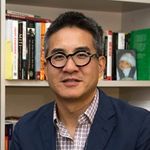Participant Biographies
 Jason Beckfield is Professor of Sociology and Associate Director of the Center for Population and Development Studies at Harvard University. He specializes in the relationship between social policy and social inequality, and is currently writing a book about how political sociology and social epidemiology can learn from one another and develop new explanations for the uneven distribution of population health. The book is under contract with Oxford University Press and is tentatively titled The Political Sociology of Population Health.
Jason Beckfield is Professor of Sociology and Associate Director of the Center for Population and Development Studies at Harvard University. He specializes in the relationship between social policy and social inequality, and is currently writing a book about how political sociology and social epidemiology can learn from one another and develop new explanations for the uneven distribution of population health. The book is under contract with Oxford University Press and is tentatively titled The Political Sociology of Population Health.
Beckfield’s research on global health has deepened through trans-disciplinary collaboration. His work with Nancy Krieger’s group produced a series of articles that evaluate political-sociological determinants of health inequalities, several published in the American Journal of Public Health. Recently, with an international team of researchers led by Clare Bambra, Beckfield developed a general institutional theory of social inequalities in health, which was published as “An institutional theory of welfare state effects on the distribution of population health” in Social Theory and Health in 2015.
 Susan E. Bell, PhD, is Professor and Department Head in the Department of Sociology at Drexel University. Her scholarship examines patient cultures, embodied health movements, women’s health, the changing culture and structure of biomedicine, and visual and performative ways of understanding illness. In the field of global health, she is working on a book project in which she investigates the global flow of biomedical knowledge and spatial permeability by listening to and analyzing stories constructed in interactions between immigrant and refugee patient populations and staff in US hospital outpatient clinics. Related to this is a study of the career pathways and experiences of physicians who enter the US as refugees. Her newest global health project is with a collaborative, interdisciplinary social science network that is documenting and critically analyzing the social lives of the Zika virus, with funding from the American Sociological Association and the Wellcome Trust (https://www.zssn.org/). Recent global health publications include “Placing Care: Embodying Architecture in Hospital Clinics for Immigrant and Refugee Patients (Sociology of Health & Illness 2017) and Reimagining (Bio)Medicalization, Pharmaceuticals and Genetics: Old Critiques and New Engagements (Routledge 2015) (co-edited with Anne Figert). She has served as Chair of the ASA’s medical sociology section and member of the editorial boards of Journal of Health and Social Behavior, health, Qualitative Sociology and SHI.
Susan E. Bell, PhD, is Professor and Department Head in the Department of Sociology at Drexel University. Her scholarship examines patient cultures, embodied health movements, women’s health, the changing culture and structure of biomedicine, and visual and performative ways of understanding illness. In the field of global health, she is working on a book project in which she investigates the global flow of biomedical knowledge and spatial permeability by listening to and analyzing stories constructed in interactions between immigrant and refugee patient populations and staff in US hospital outpatient clinics. Related to this is a study of the career pathways and experiences of physicians who enter the US as refugees. Her newest global health project is with a collaborative, interdisciplinary social science network that is documenting and critically analyzing the social lives of the Zika virus, with funding from the American Sociological Association and the Wellcome Trust (https://www.zssn.org/). Recent global health publications include “Placing Care: Embodying Architecture in Hospital Clinics for Immigrant and Refugee Patients (Sociology of Health & Illness 2017) and Reimagining (Bio)Medicalization, Pharmaceuticals and Genetics: Old Critiques and New Engagements (Routledge 2015) (co-edited with Anne Figert). She has served as Chair of the ASA’s medical sociology section and member of the editorial boards of Journal of Health and Social Behavior, health, Qualitative Sociology and SHI.
 Adia Benton is an Assistant Professor of Anthropology and African Studies at Northwestern University, where she is affiliated with the Science in Human Culture Program. Her current research is on the role of ideology in global health, using as a case study the growing movement to fully incorporate surgical care into commonsense notions of “global health.” Her other writing has touched on the politics of anthropological knowledge in infectious disease outbreak response (and most recently, the response to the West African Ebola outbreak), racial hierarchies in humanitarianism and development, and techniques of enumeration in gender-based violence programs. She has a PhD in social anthropology from Harvard University, an MPH in international health from the Rollins School of Public Health at Emory University, and an AB in Human Biology from Brown University. She has held a postdoctoral fellowship at Dartmouth College and visiting positions at Oberlin College and in the Department of Global Health and Social Medicine at Harvard Medical School.
Adia Benton is an Assistant Professor of Anthropology and African Studies at Northwestern University, where she is affiliated with the Science in Human Culture Program. Her current research is on the role of ideology in global health, using as a case study the growing movement to fully incorporate surgical care into commonsense notions of “global health.” Her other writing has touched on the politics of anthropological knowledge in infectious disease outbreak response (and most recently, the response to the West African Ebola outbreak), racial hierarchies in humanitarianism and development, and techniques of enumeration in gender-based violence programs. She has a PhD in social anthropology from Harvard University, an MPH in international health from the Rollins School of Public Health at Emory University, and an AB in Human Biology from Brown University. She has held a postdoctoral fellowship at Dartmouth College and visiting positions at Oberlin College and in the Department of Global Health and Social Medicine at Harvard Medical School.
 Jesse B. Bump is Lecturer on Global Health Policy in the Department of Global Health and Population, and Executive Director of the Takemi Program in International Health at the Harvard T.H. Chan School of Public Health. Dr. Bump’s research focuses on the historical, political, and economic forces that are among the most fundamental determinants of ill health and the effectiveness of related institutions. His research addresses major themes in global health history, and in the political economy of global health to analyze these macro forces and develop strategies to navigate better solutions within them. Projects have investigated the history of child health problems such as diarrheal disease and congenital syphilis to explain how issues rise and fall on the global health agenda and to produce strategies to better align political visibility with health needs; the historical development of health systems and the implications for development assistance in that area; and the political economy of policy making and implementation in areas such as universal health coverage, humanitarian assistance, tobacco control, and nutrition governance. Dr. Bump holds a Baccalaureate in Astronomy and History from Amherst College, a Master in Public Health from Harvard University and a PhD in the History of Science, Medicine, and Technology from the Johns Hopkins University. Previously he was a Takemi Fellow at the Harvard School of Public Health and then Assistant Professor in the Department of International Health at Georgetown University.
Jesse B. Bump is Lecturer on Global Health Policy in the Department of Global Health and Population, and Executive Director of the Takemi Program in International Health at the Harvard T.H. Chan School of Public Health. Dr. Bump’s research focuses on the historical, political, and economic forces that are among the most fundamental determinants of ill health and the effectiveness of related institutions. His research addresses major themes in global health history, and in the political economy of global health to analyze these macro forces and develop strategies to navigate better solutions within them. Projects have investigated the history of child health problems such as diarrheal disease and congenital syphilis to explain how issues rise and fall on the global health agenda and to produce strategies to better align political visibility with health needs; the historical development of health systems and the implications for development assistance in that area; and the political economy of policy making and implementation in areas such as universal health coverage, humanitarian assistance, tobacco control, and nutrition governance. Dr. Bump holds a Baccalaureate in Astronomy and History from Amherst College, a Master in Public Health from Harvard University and a PhD in the History of Science, Medicine, and Technology from the Johns Hopkins University. Previously he was a Takemi Fellow at the Harvard School of Public Health and then Assistant Professor in the Department of International Health at Georgetown University.
 Melani Cammett is Clarence Dillon Professor of International Affairs in the Department of Government at Harvard University and holds a secondary faculty appointment in the Harvard Chan School of Public Health. Cammett’s books include Compassionate Communalism: Welfare and Sectarianism in Lebanon (Cornell University Press 2014), which won the American Political Science Association (APSA) Giovanni Sartori Book Award and the Honorable Mention for the APSA Gregory Luebbert Book Award; A Political Economy of the Middle East (co-authored with Ishac Diwan, Westview Press 2015); The Politics of Non-State Social Welfare in the Global South (co-edited with Lauren Morris MacLean, Cornell University Press, 2014), which received the Honorable Mention for the ARNOVA book award; and Globalization and Business Politics in North Africa (Cambridge University Press, 2007). Her current research explores governance and social service provision, identity politics and post-conflict institutional arrangements, primarily in the Middle East. She is also working on a new project on the long-term historical roots of development trajectories in the region. Cammett has published numerous articles in academic and policy journals, consults for development policy organizations, and is the recipient of various fellowships and awards. She currently serves as a Commissioner on the Lancet Commission on Syria.
Melani Cammett is Clarence Dillon Professor of International Affairs in the Department of Government at Harvard University and holds a secondary faculty appointment in the Harvard Chan School of Public Health. Cammett’s books include Compassionate Communalism: Welfare and Sectarianism in Lebanon (Cornell University Press 2014), which won the American Political Science Association (APSA) Giovanni Sartori Book Award and the Honorable Mention for the APSA Gregory Luebbert Book Award; A Political Economy of the Middle East (co-authored with Ishac Diwan, Westview Press 2015); The Politics of Non-State Social Welfare in the Global South (co-edited with Lauren Morris MacLean, Cornell University Press, 2014), which received the Honorable Mention for the ARNOVA book award; and Globalization and Business Politics in North Africa (Cambridge University Press, 2007). Her current research explores governance and social service provision, identity politics and post-conflict institutional arrangements, primarily in the Middle East. She is also working on a new project on the long-term historical roots of development trajectories in the region. Cammett has published numerous articles in academic and policy journals, consults for development policy organizations, and is the recipient of various fellowships and awards. She currently serves as a Commissioner on the Lancet Commission on Syria.
 Nitsan Chorev is the Harmon Family Professor of Sociology and International & Public Affairs at Brown University. Among other publications, she is the author of Remaking U.S. Trade Policy: From Protectionism to Globalization (Cornell University Press, 2007) and of The World Health Organization between North and South (Cornell University Press, 2012). She is currently working on a book manuscript on foreign aid, which investigates the effect of foreign aid by looking at local pharmaceutical production in Kenya, Tanzania and Uganda, both in the 1980s and in the current era.
Nitsan Chorev is the Harmon Family Professor of Sociology and International & Public Affairs at Brown University. Among other publications, she is the author of Remaking U.S. Trade Policy: From Protectionism to Globalization (Cornell University Press, 2007) and of The World Health Organization between North and South (Cornell University Press, 2012). She is currently working on a book manuscript on foreign aid, which investigates the effect of foreign aid by looking at local pharmaceutical production in Kenya, Tanzania and Uganda, both in the 1980s and in the current era.
 Johanna T. Crane is an Associate Professor of Science, Technology, and Society and Global Studies at the University of Washington’s Bothell campus. She is the author of the 2013 book Scrambling for Africa: AIDS, Expertise, and the Rise of American Global Health Science, an ethnography of transnational HIV research and scientific politics in the U.S. and Uganda. Dr. Crane earned her Ph.D. from the UCSF/UC Berkeley Joint Program in Medical Anthropology in 2007 and has held fellowships at Cornell University, the University of Pennsylvania, and the National Institutes of Health. She is currently spending her sabbatical as a visiting scholar at the Hastings Center for Bioethics and an instructor within the Bard Prison Initiative. In addition to continued work on global health partnerships, she is also engaged in a new project focused on aging, chronic illness, and ethics and technologies of care within the U.S. prison system.
Johanna T. Crane is an Associate Professor of Science, Technology, and Society and Global Studies at the University of Washington’s Bothell campus. She is the author of the 2013 book Scrambling for Africa: AIDS, Expertise, and the Rise of American Global Health Science, an ethnography of transnational HIV research and scientific politics in the U.S. and Uganda. Dr. Crane earned her Ph.D. from the UCSF/UC Berkeley Joint Program in Medical Anthropology in 2007 and has held fellowships at Cornell University, the University of Pennsylvania, and the National Institutes of Health. She is currently spending her sabbatical as a visiting scholar at the Hastings Center for Bioethics and an instructor within the Bard Prison Initiative. In addition to continued work on global health partnerships, she is also engaged in a new project focused on aging, chronic illness, and ethics and technologies of care within the U.S. prison system.
 Claire Decoteau is an Associate Professor of Sociology at the University of Illinois at Chicago. Broadly, her research focuses on the social construction of health and disease, the politics of knowledge production, and peoples’ grounded experiences with healing and health care systems. Her book, Ancestors and Antiretrovirals: The Biopolitics of HIV/AIDS in Post-Apartheid South Africa (2013, University of Chicago Press) traces the politics of AIDS in South Africa from 1994 through 2010 analyzing: the political economy of the post-apartheid health system, the shifting symbolic struggles over the signification of HIV/AIDS, and the ways in which communities profoundly affected by the epidemic incorporate culturally hybrid subjectivities, informed by both indigenous and biomedical healing paradigms. This book was awarded three honorable mentions for outstanding book awards from ASA sections: Medical Sociology; Science, Knowledge and Technology; and the Theory Section. Decoteau is writing a new book analyzing the epistemic communities Somali refugees in Toronto and Minneapolis have forged to make sense of their children’s vulnerability to autism. This is the first study of autism to explore the racial, class and national implications of autism etiology and politics.
Claire Decoteau is an Associate Professor of Sociology at the University of Illinois at Chicago. Broadly, her research focuses on the social construction of health and disease, the politics of knowledge production, and peoples’ grounded experiences with healing and health care systems. Her book, Ancestors and Antiretrovirals: The Biopolitics of HIV/AIDS in Post-Apartheid South Africa (2013, University of Chicago Press) traces the politics of AIDS in South Africa from 1994 through 2010 analyzing: the political economy of the post-apartheid health system, the shifting symbolic struggles over the signification of HIV/AIDS, and the ways in which communities profoundly affected by the epidemic incorporate culturally hybrid subjectivities, informed by both indigenous and biomedical healing paradigms. This book was awarded three honorable mentions for outstanding book awards from ASA sections: Medical Sociology; Science, Knowledge and Technology; and the Theory Section. Decoteau is writing a new book analyzing the epistemic communities Somali refugees in Toronto and Minneapolis have forged to make sense of their children’s vulnerability to autism. This is the first study of autism to explore the racial, class and national implications of autism etiology and politics.
 Christina Ewig is Professor of Public Affairs and Director of the Center on Women, Gender and Public Policy at the Humphrey School of Public Affairs at the University of Minnesota. Professor Ewig’s research centers on the politics of gender and race in Latin America. She has published widely on gender, race and social policy reforms in Latin America. Her current research investigates whether the rise of women and indigenous peoples into political office in Latin America has made a difference for the kinds of policy that is produced. Her book, Second-Wave Neoliberalism: Gender, Race and Health Sector Reform in Peru (Penn State University Press, 2010) won the Flora Tristán award for best book on Peru from the Peru Section of the Latin American Studies Association. Her articles have appeared in Comparative Political Studies, Feminist Studies, Social Science & Medicine, World Development, and Social Politics among other journals.
Christina Ewig is Professor of Public Affairs and Director of the Center on Women, Gender and Public Policy at the Humphrey School of Public Affairs at the University of Minnesota. Professor Ewig’s research centers on the politics of gender and race in Latin America. She has published widely on gender, race and social policy reforms in Latin America. Her current research investigates whether the rise of women and indigenous peoples into political office in Latin America has made a difference for the kinds of policy that is produced. Her book, Second-Wave Neoliberalism: Gender, Race and Health Sector Reform in Peru (Penn State University Press, 2010) won the Flora Tristán award for best book on Peru from the Peru Section of the Latin American Studies Association. Her articles have appeared in Comparative Political Studies, Feminist Studies, Social Science & Medicine, World Development, and Social Politics among other journals.
 Joseph Harris conducts comparative and historical research that lies at the intersection of sociology, public policy, and global health. He is the author of Achieving Access: Professional Movements and the Politics of Health Universalism (Cornell University Press, 2017). His current Fulbright-funded research project explores the diffusion of Thailand’s public health policies abroad. His other work examines the politics of social policy in the industrializing world; comparative understanding of state capacity, bureaucratic autonomy, and the developmental state; and the emergent sociology of global health. Dr. Harris has served as a consultant to the United Nations Development Programme and the World Bank, most recently as Specialist on the Political Economy of Healthcare Reform for the Japan-World Bank Project on Universal Coverage. He is a past recipient of a Fulbright-Hays Doctoral Dissertation Award and the Henry Luce Scholarship and holds a Master’s in Public Affairs from Princeton’s Woodrow Wilson School of Public and International Affairs. He received his doctorate in Sociology from the University of Wisconsin-Madison and served as Lecturer at the University of Chicago’s School of Public Policy Studies before joining the faculty at BU. In 2017, Dr. Harris received the Gitner Award for Distinguished Teaching. He currently serves as Associate Editor at Social Science and Medicine.
Joseph Harris conducts comparative and historical research that lies at the intersection of sociology, public policy, and global health. He is the author of Achieving Access: Professional Movements and the Politics of Health Universalism (Cornell University Press, 2017). His current Fulbright-funded research project explores the diffusion of Thailand’s public health policies abroad. His other work examines the politics of social policy in the industrializing world; comparative understanding of state capacity, bureaucratic autonomy, and the developmental state; and the emergent sociology of global health. Dr. Harris has served as a consultant to the United Nations Development Programme and the World Bank, most recently as Specialist on the Political Economy of Healthcare Reform for the Japan-World Bank Project on Universal Coverage. He is a past recipient of a Fulbright-Hays Doctoral Dissertation Award and the Henry Luce Scholarship and holds a Master’s in Public Affairs from Princeton’s Woodrow Wilson School of Public and International Affairs. He received his doctorate in Sociology from the University of Wisconsin-Madison and served as Lecturer at the University of Chicago’s School of Public Policy Studies before joining the faculty at BU. In 2017, Dr. Harris received the Gitner Award for Distinguished Teaching. He currently serves as Associate Editor at Social Science and Medicine.
 Carmen Jacqueline Ho is a PhD Candidate (ABD) at the University of Toronto in the Department of Political Science. Currently, she holds a 2017-18 Fulbright Canada Award at the Harvard School of Public Health with the Takemi Program in International Health. Her doctoral dissertation investigates the United Nations “Scaling Up Nutrition” agreement and its ability to elicit national health reform in country signatories. To explain variation in policy reform, she compares state capacity and regime type in the cases of Cambodia, Indonesia, Laos, and the Philippines, where she conducted her fieldwork. More broadly, Carmen is interested in three research questions, with a focus on public health in Asia’s low and middle-income countries: What explains why certain countries adopt and implement equitable social welfare policies, while others do not? Under what conditions do non-state actors facilitate social welfare policy reform? And what are the political consequences of non-state social welfare provision? Her research has been funded by the Social Sciences and Humanities Research Council of Canada, Ontario Provincial Government, International Development Research Centre, and other institutions.
Carmen Jacqueline Ho is a PhD Candidate (ABD) at the University of Toronto in the Department of Political Science. Currently, she holds a 2017-18 Fulbright Canada Award at the Harvard School of Public Health with the Takemi Program in International Health. Her doctoral dissertation investigates the United Nations “Scaling Up Nutrition” agreement and its ability to elicit national health reform in country signatories. To explain variation in policy reform, she compares state capacity and regime type in the cases of Cambodia, Indonesia, Laos, and the Philippines, where she conducted her fieldwork. More broadly, Carmen is interested in three research questions, with a focus on public health in Asia’s low and middle-income countries: What explains why certain countries adopt and implement equitable social welfare policies, while others do not? Under what conditions do non-state actors facilitate social welfare policy reform? And what are the political consequences of non-state social welfare provision? Her research has been funded by the Social Sciences and Humanities Research Council of Canada, Ontario Provincial Government, International Development Research Centre, and other institutions.
 Anthony C. Janetos is Director of the Frederick S. Pardee Center for the Study of the Longer-Range Future and the Frederick S. Pardee Professor of Earth & Environment at Boston University. He has devoted his career to high-impact global change science and policy, earning international recognition for his scholarship. He is the author of numerous papers in both natural and social science journals on a range of topics related to his primary research interest, the interaction of land systems with human needs and climate change. A recognized leader in the scientific community, he chairs several national and international committees that oversee scientific pursuits and educational policies related to various natural science disciplines. Prior to joining Boston University in 2013, Prof. Janetos served as Director of the Joint Global Change Research Institute at the University of Maryland for six years. Prior to that, he held executive leadership positions at institutions including the U.S. Environmental Protection Agency, NASA, World Resources Institute, and the Heinz Center for Science, Economics, and the Environment. He has served on several national and international study teams, including working as a co-chair of the U.S. National Assessment of the Potential Consequences of Climate Variability and Change. He has been an Intergovernmental Panel on Climate Change Lead Author and Coordinating Lead Author, and has served on multiple National Research Council Committees and Boards. He currently chairs the National Science Foundation’s Advisory Committee on Environmental Research and Education, as well as the National Academy of Sciences Committee to Advise the US Global Change Research Program.
Anthony C. Janetos is Director of the Frederick S. Pardee Center for the Study of the Longer-Range Future and the Frederick S. Pardee Professor of Earth & Environment at Boston University. He has devoted his career to high-impact global change science and policy, earning international recognition for his scholarship. He is the author of numerous papers in both natural and social science journals on a range of topics related to his primary research interest, the interaction of land systems with human needs and climate change. A recognized leader in the scientific community, he chairs several national and international committees that oversee scientific pursuits and educational policies related to various natural science disciplines. Prior to joining Boston University in 2013, Prof. Janetos served as Director of the Joint Global Change Research Institute at the University of Maryland for six years. Prior to that, he held executive leadership positions at institutions including the U.S. Environmental Protection Agency, NASA, World Resources Institute, and the Heinz Center for Science, Economics, and the Environment. He has served on several national and international study teams, including working as a co-chair of the U.S. National Assessment of the Potential Consequences of Climate Variability and Change. He has been an Intergovernmental Panel on Climate Change Lead Author and Coordinating Lead Author, and has served on multiple National Research Council Committees and Boards. He currently chairs the National Science Foundation’s Advisory Committee on Environmental Research and Education, as well as the National Academy of Sciences Committee to Advise the US Global Change Research Program.
 Salmaan Keshavjee is an associate professor in the Department of Global Health and Social Medicine and Department of Medicine at Harvard Medical School, and Director of Harvard Medical School’s Center for Global Health Delivery–Dubai. He also serves as a physician in the Division of Global Health Equity at the Brigham and Women’s Hospital. He conducted doctoral research in medical anthropology at Harvard University on the health transition in post-Soviet Tajikistan. He has worked with the Division of Global Health Equity and the Boston-based non-profit, Partners In Health, on the implementation of a multidrug-resistant tuberculosis (MDR-TB) treatment program in Tomsk, Russia. Between 2006 and 2008, Dr. Keshavjee set up the first community-based treatment program to treat patients co-infected with HIV and MDR-TB in Lesotho. Between 2007 and 2010, Dr. Keshavjee served as the chair of the Green Light Committee Initiative, a Stop TB Partnership/WHO initiative which helped countries gain access to high-quality second-line anti-TB drugs so they can provide treatment for people with MDR-TB. He is a co-founder of Advance Access & Delivery, a non-profit committed to addressing critical challenges in access to medicines and the delivery of comprehensive healthcare, particularly for economically and socially marginalized groups. Dr. Keshavjee’s anthropological work focuses on the anthropology of policy and healthcare delivery. He is the author of Blind Spot: How Neoliberalism Infiltrated Global Health (2014). Dr. Keshavjee received his ScM from the Harvard School of Public Health in 1993, his PhD in Anthropology and Middle Eastern Studies from Harvard University in 1998, and his MD from Stanford University in 2001.
Salmaan Keshavjee is an associate professor in the Department of Global Health and Social Medicine and Department of Medicine at Harvard Medical School, and Director of Harvard Medical School’s Center for Global Health Delivery–Dubai. He also serves as a physician in the Division of Global Health Equity at the Brigham and Women’s Hospital. He conducted doctoral research in medical anthropology at Harvard University on the health transition in post-Soviet Tajikistan. He has worked with the Division of Global Health Equity and the Boston-based non-profit, Partners In Health, on the implementation of a multidrug-resistant tuberculosis (MDR-TB) treatment program in Tomsk, Russia. Between 2006 and 2008, Dr. Keshavjee set up the first community-based treatment program to treat patients co-infected with HIV and MDR-TB in Lesotho. Between 2007 and 2010, Dr. Keshavjee served as the chair of the Green Light Committee Initiative, a Stop TB Partnership/WHO initiative which helped countries gain access to high-quality second-line anti-TB drugs so they can provide treatment for people with MDR-TB. He is a co-founder of Advance Access & Delivery, a non-profit committed to addressing critical challenges in access to medicines and the delivery of comprehensive healthcare, particularly for economically and socially marginalized groups. Dr. Keshavjee’s anthropological work focuses on the anthropology of policy and healthcare delivery. He is the author of Blind Spot: How Neoliberalism Infiltrated Global Health (2014). Dr. Keshavjee received his ScM from the Harvard School of Public Health in 1993, his PhD in Anthropology and Middle Eastern Studies from Harvard University in 1998, and his MD from Stanford University in 2001.
 Andrew Lakoff holds a joint appointment in the Departments of Sociology and Communication at the University of Southern California. He was trained as an anthropologist of science and medicine, and has conducted research in Argentina, France and the United States. His areas of interest include globalization processes, the history of the human sciences, contemporary social theory, and risk society. Lakoff’s first book, Pharmaceutical Reason: Knowledge and Value in Global Psychiatry (Cambridge, 2005), examines the role of the global circulation of pharmaceuticals in the spread of biological models of human behavior. He has also co-edited a book entitled Global Pharmaceuticals: Ethics, Markets, Practice (Duke, 2006), and has published articles on visual technology and the behavioral sciences, on the history of attention deficit disorder, on antidepressants and the placebo effect, and on forms of expertise in global health. Lakoff’s current research concerns the recent articulation of expertise in public health and security in a global context, and his recent book publications include the co-edited volume, Biosecurity Interventions: Global Health and Security in Question (Columbia University Press, 2008), and the edited volume Disaster and the Politics of Intervention (Columbia University Press, 2010). His newest book, Global Health in a Time of Emergency, is forthcoming from the University of California Press.
Andrew Lakoff holds a joint appointment in the Departments of Sociology and Communication at the University of Southern California. He was trained as an anthropologist of science and medicine, and has conducted research in Argentina, France and the United States. His areas of interest include globalization processes, the history of the human sciences, contemporary social theory, and risk society. Lakoff’s first book, Pharmaceutical Reason: Knowledge and Value in Global Psychiatry (Cambridge, 2005), examines the role of the global circulation of pharmaceuticals in the spread of biological models of human behavior. He has also co-edited a book entitled Global Pharmaceuticals: Ethics, Markets, Practice (Duke, 2006), and has published articles on visual technology and the behavioral sciences, on the history of attention deficit disorder, on antidepressants and the placebo effect, and on forms of expertise in global health. Lakoff’s current research concerns the recent articulation of expertise in public health and security in a global context, and his recent book publications include the co-edited volume, Biosecurity Interventions: Global Health and Security in Question (Columbia University Press, 2008), and the edited volume Disaster and the Politics of Intervention (Columbia University Press, 2010). His newest book, Global Health in a Time of Emergency, is forthcoming from the University of California Press.
 Evan Lieberman is the Total Professor of Political Science and Contemporary Africa at MIT. Previously a member of the faculty at Princeton University for 12 years, and a Robert Wood Johnson Health Policy Scholar at Yale University, Lieberman received his PhD from the University of California, Berkeley, and his BA from Princeton. Lieberman’s research is concerned with democratic governance, risk perception, the causes and consequences of ethnic conflict, and the determinants of good governance and policy-making, particularly in sub-Saharan Africa and in the area of public health. He also writes and teaches on research methods. Lieberman is the author of two scholarly books, Race and Regionalism in the Politics of Taxation (Cambridge 2003) and Boundaries of Contagion: How Ethnic Politics Have Shaped Government Responses to AIDS (Princeton 2009) and numerous articles, which have been published in World Politics, the American Political Science Review, World Development, Comparative Political Studies, and other journals. He received the 2014 David Collier mid-career achievement award.
Evan Lieberman is the Total Professor of Political Science and Contemporary Africa at MIT. Previously a member of the faculty at Princeton University for 12 years, and a Robert Wood Johnson Health Policy Scholar at Yale University, Lieberman received his PhD from the University of California, Berkeley, and his BA from Princeton. Lieberman’s research is concerned with democratic governance, risk perception, the causes and consequences of ethnic conflict, and the determinants of good governance and policy-making, particularly in sub-Saharan Africa and in the area of public health. He also writes and teaches on research methods. Lieberman is the author of two scholarly books, Race and Regionalism in the Politics of Taxation (Cambridge 2003) and Boundaries of Contagion: How Ethnic Politics Have Shaped Government Responses to AIDS (Princeton 2009) and numerous articles, which have been published in World Politics, the American Political Science Review, World Development, Comparative Political Studies, and other journals. He received the 2014 David Collier mid-career achievement award.
 James W. McGuire is Professor and Chair in the Department of Government at Wesleyan University, where he received the Binswanger Prize for Excellence in Teaching. His BA is from Swarthmore and his PhD is from the University of California, Berkeley. He specializes in the comparative politics of developing countries, focusing on democracy, social welfare policies, and public health. He is the author of Peronism without Perón: Unions, Parties, and Democracy in Argentina (Stanford University Press, 1997) and of Wealth, Health, and Democracy in East Asia and Latin America (Cambridge University Press, 2010), which won the 2011 Stein Rokkan Prize for Comparative Social Science Research. His recent research has involved Latin American social policies, regime type and infant mortality, the conceptualization of democracy, growth and inequality in Latin America and East Asia, conditional cash transfers in Ecuador, economic development in contemporary Cuba, and the impact of women legislators on health outcomes.
James W. McGuire is Professor and Chair in the Department of Government at Wesleyan University, where he received the Binswanger Prize for Excellence in Teaching. His BA is from Swarthmore and his PhD is from the University of California, Berkeley. He specializes in the comparative politics of developing countries, focusing on democracy, social welfare policies, and public health. He is the author of Peronism without Perón: Unions, Parties, and Democracy in Argentina (Stanford University Press, 1997) and of Wealth, Health, and Democracy in East Asia and Latin America (Cambridge University Press, 2010), which won the 2011 Stein Rokkan Prize for Comparative Social Science Research. His recent research has involved Latin American social policies, regime type and infant mortality, the conceptualization of democracy, growth and inequality in Latin America and East Asia, conditional cash transfers in Ecuador, economic development in contemporary Cuba, and the impact of women legislators on health outcomes.
 Lynn M. Morgan, Mary E. Woolley Professor of Anthropology at Mount Holyoke College, is a medical anthropologist and feminist science studies scholar who has authored and edited three books — Icons of Life: A Cultural History of Human Embryos (University of California Press, 2009), Community Participation in Health: The Politics of Primary Care in Costa Rica (Cambridge, 1993), and Fetal Subjects, Feminist Positions (University of Pennsylvania Press, 1999) – and over 35 articles. Her awards include the Rachel Carson Prize from the Society for the Social Studies of Science (4S) for Icons of Life, and fellowships from the National Science Foundation, National Endowment for Humanities, Social Science Research Council, and the School for Advanced Research. She is currently writing about the backlash against reproductive rights movements in Latin America.
Lynn M. Morgan, Mary E. Woolley Professor of Anthropology at Mount Holyoke College, is a medical anthropologist and feminist science studies scholar who has authored and edited three books — Icons of Life: A Cultural History of Human Embryos (University of California Press, 2009), Community Participation in Health: The Politics of Primary Care in Costa Rica (Cambridge, 1993), and Fetal Subjects, Feminist Positions (University of Pennsylvania Press, 1999) – and over 35 articles. Her awards include the Rachel Carson Prize from the Society for the Social Studies of Science (4S) for Icons of Life, and fellowships from the National Science Foundation, National Endowment for Humanities, Social Science Research Council, and the School for Advanced Research. She is currently writing about the backlash against reproductive rights movements in Latin America.
 Shiri Noy is Assistant Professor of Sociology and Adjunct Assistant Professor of Global and Area Studies at the University of Wyoming. Her research examines global governance, development, and political culture and how these processes influence social inequality and public policy, especially in health. Her book, Banking on Health: The World Bank and Health Sector Reform in Latin America (Palgrave Macmillan 2017) is a mixed methods analysis that addresses the puzzle of why the World Bank was unable to effect sweeping neoliberal reforms in health in Latin America in the 1980s and beyond. Her research on global health has also been published in the International Journal of Comparative Sociology, Sociology of Development, and Oxford Development Studies among other outlets.
Shiri Noy is Assistant Professor of Sociology and Adjunct Assistant Professor of Global and Area Studies at the University of Wyoming. Her research examines global governance, development, and political culture and how these processes influence social inequality and public policy, especially in health. Her book, Banking on Health: The World Bank and Health Sector Reform in Latin America (Palgrave Macmillan 2017) is a mixed methods analysis that addresses the puzzle of why the World Bank was unable to effect sweeping neoliberal reforms in health in Latin America in the 1980s and beyond. Her research on global health has also been published in the International Journal of Comparative Sociology, Sociology of Development, and Oxford Development Studies among other outlets.
Michael R. Reich is the Taro Takemi Research Professor of International Health Policy at the Harvard T.H. Chan School of Public Health. He received his Ph.D. in political science from Yale University in 1981 and has been a member of the Harvard faculty since 1983. Dr. Reich has research interests in the political economy of pharmaceutical policy, access to medicines, and public-private partnerships, and has published extensively on these topics. He coauthored a widely used book on health systems, Getting Health Reform Right: A Guide to Improving Performance and Equity (Oxford University Press, 2004, with M.J. Roberts, W.C. Hsiao, and P. Berman). In 2008, Reich published a book with Laura J. Frost on Access: How do Good Health Technologies Get to Poor People in Poor Countries? (Harvard University Press, 2008). He was a member of the Lancet Commission on Essential Medicines Policies, which published its report in fall 2016. He is also a founding Editor-in-Chief of the new journal Health Systems & Reform, now in its third year.
is the Taro Takemi Research Professor of International Health Policy at the Harvard T.H. Chan School of Public Health. He received his Ph.D. in political science from Yale University in 1981 and has been a member of the Harvard faculty since 1983. Dr. Reich has research interests in the political economy of pharmaceutical policy, access to medicines, and public-private partnerships, and has published extensively on these topics. He coauthored a widely used book on health systems, Getting Health Reform Right: A Guide to Improving Performance and Equity (Oxford University Press, 2004, with M.J. Roberts, W.C. Hsiao, and P. Berman). In 2008, Reich published a book with Laura J. Frost on Access: How do Good Health Technologies Get to Poor People in Poor Countries? (Harvard University Press, 2008). He was a member of the Lancet Commission on Essential Medicines Policies, which published its report in fall 2016. He is also a founding Editor-in-Chief of the new journal Health Systems & Reform, now in its third year.
 Jon Shaffer is a Ph.D. student in sociology at Boston University where his research interests exist at the intersection of global health, human rights, science and technology studies, and social movements. Previously, Jon launched a community organizing platform with Partners In Health called PIH Engage (engage.pih.org), which has supported more than 100 teams of volunteer community organizers, thousands of new grassroots supporters, raised nearly one million dollars, and developed new capacity to advocate for policies that advance the human right to health. Before that, he worked to develop, launch, and lead GlobeMed (www.globemed.org) which has engaged thousands of university students in the global health equity movement. When not organizing or reading, Jon loves going for runs, playing KanJam, and learning to strum the guitar.
Jon Shaffer is a Ph.D. student in sociology at Boston University where his research interests exist at the intersection of global health, human rights, science and technology studies, and social movements. Previously, Jon launched a community organizing platform with Partners In Health called PIH Engage (engage.pih.org), which has supported more than 100 teams of volunteer community organizers, thousands of new grassroots supporters, raised nearly one million dollars, and developed new capacity to advocate for policies that advance the human right to health. Before that, he worked to develop, launch, and lead GlobeMed (www.globemed.org) which has engaged thousands of university students in the global health equity movement. When not organizing or reading, Jon loves going for runs, playing KanJam, and learning to strum the guitar.
 Jeremy Shiffman is Professor in the Department of Public Administration and Policy at American University in Washington, DC. A political scientist by training, his research focuses on the politics of health policy–making in low–income countries, and the global governance of health and social development. His research has been funded by the Gates, MacArthur and Rockefeller Foundations and the United States Agency for International Development, among other organizations. His work has appeared in multiple journals, including The Lancet, The American Journal of Public Health and Population and Development Review. He is the inaugural recipient of the Gary and Stacey Jacobs Award for excellence in health policy research, and was named scholar-teacher of the year at American University’s School of Public Affairs in 2017. Across his career, he has received six awards for excellence in teaching. He has served on multiple technical advisory committees for organizations working in global health and development, including the World Health Organization and Save the Children. He received a BA summa cum laude from Yale University in philosophy, an MA from Johns Hopkins University (SAIS) in international relations, and a Ph.D. from the University of Michigan in political science.
Jeremy Shiffman is Professor in the Department of Public Administration and Policy at American University in Washington, DC. A political scientist by training, his research focuses on the politics of health policy–making in low–income countries, and the global governance of health and social development. His research has been funded by the Gates, MacArthur and Rockefeller Foundations and the United States Agency for International Development, among other organizations. His work has appeared in multiple journals, including The Lancet, The American Journal of Public Health and Population and Development Review. He is the inaugural recipient of the Gary and Stacey Jacobs Award for excellence in health policy research, and was named scholar-teacher of the year at American University’s School of Public Affairs in 2017. Across his career, he has received six awards for excellence in teaching. He has served on multiple technical advisory committees for organizations working in global health and development, including the World Health Organization and Save the Children. He received a BA summa cum laude from Yale University in philosophy, an MA from Johns Hopkins University (SAIS) in international relations, and a Ph.D. from the University of Michigan in political science.
 Prerna Singh is Mahatma Gandhi Assistant Professor of Political Science and International Studies and faculty fellow at the Watson Institute, and co-convenor of the Brown-Harvard-MIT Joint Seminar in South Asian Politics. She completed her PhD and MA from the Department of Politics at Princeton University, the tripos in social and political studies from Cambridge University, UK, and a BA (Honors) in economics from Delhi University. Prior to joining Brown, she taught in the Department of Government at Harvard University. She has also been a junior fellow at the Harvard Academy for International and Area Studies and held a pre-doctoral research fellowship at the Center for Advanced Study for India (CASI) at the University of Pennsylvania.
Prerna Singh is Mahatma Gandhi Assistant Professor of Political Science and International Studies and faculty fellow at the Watson Institute, and co-convenor of the Brown-Harvard-MIT Joint Seminar in South Asian Politics. She completed her PhD and MA from the Department of Politics at Princeton University, the tripos in social and political studies from Cambridge University, UK, and a BA (Honors) in economics from Delhi University. Prior to joining Brown, she taught in the Department of Government at Harvard University. She has also been a junior fellow at the Harvard Academy for International and Area Studies and held a pre-doctoral research fellowship at the Center for Advanced Study for India (CASI) at the University of Pennsylvania.
Her book, How Solidarity Works for Welfare: Subnationalism and Social Development in India, was published by Cambridge University Press in their Comparative Politics series earlier this year (http://www.cambridge.org/vu/a
 Siri Suh is Assistant Professor in Gender and Women’s Studies and Global Studies at the University of Minnesota. Her research bridges the fields of medical anthropology and sociology, population and development studies, and feminist and post-colonial science and technology studies. She received her PhD in Sociomedical Sciences and MPH from Columbia University and her BA in Sociology from the University of California, Berkeley. Suh’s research has been funded by the American Council of Learned Societies, the Social Science Research Council and the National Institute of Child Health and Human Development. She has conducted research on maternal and reproductive health with the United Nations Fund for Population Activities, Management Sciences for Health, and the Guttmacher Institute. Suh’s current book project, Obstetric Ambiguities: Reproductive Governance, Evidence and Global Abortion Politics in Senegal, explores how selective epidemiological and demographic fact-making about women and abortion exacerbates reproductive health inequalities in Senegal.
Siri Suh is Assistant Professor in Gender and Women’s Studies and Global Studies at the University of Minnesota. Her research bridges the fields of medical anthropology and sociology, population and development studies, and feminist and post-colonial science and technology studies. She received her PhD in Sociomedical Sciences and MPH from Columbia University and her BA in Sociology from the University of California, Berkeley. Suh’s research has been funded by the American Council of Learned Societies, the Social Science Research Council and the National Institute of Child Health and Human Development. She has conducted research on maternal and reproductive health with the United Nations Fund for Population Activities, Management Sciences for Health, and the Guttmacher Institute. Suh’s current book project, Obstetric Ambiguities: Reproductive Governance, Evidence and Global Abortion Politics in Senegal, explores how selective epidemiological and demographic fact-making about women and abortion exacerbates reproductive health inequalities in Senegal.
 Claire Wendland is a professor in the Departments of Anthropology and Obstetrics & Gynecology at University of Wisconsin-Madison. She is a physician who worked as an obstetrician-gynecologist on the Navajo reservation before turning to medical anthropology. Her research primarily explores healing expertise in African settings. In A Heart for the Work: Journeys through an African Medical School, the first ethnography of a medical school in the global South, Wendland described the intellectual and professional journeys of Malawian medical students over the course of their studies. Her current research project, again in Malawi, explores explanations for maternal death in a context in which mortality rates are very high while the uncertainties surrounding any given death are substantial.
Claire Wendland is a professor in the Departments of Anthropology and Obstetrics & Gynecology at University of Wisconsin-Madison. She is a physician who worked as an obstetrician-gynecologist on the Navajo reservation before turning to medical anthropology. Her research primarily explores healing expertise in African settings. In A Heart for the Work: Journeys through an African Medical School, the first ethnography of a medical school in the global South, Wendland described the intellectual and professional journeys of Malawian medical students over the course of their studies. Her current research project, again in Malawi, explores explanations for maternal death in a context in which mortality rates are very high while the uncertainties surrounding any given death are substantial.
 Veronika J. Wirtz, MSc, PhD is an Associate Professor in the Department of Global Health at the Boston University School of Public Health. She is a researcher and educator with over ten years of experience in global health focusing on health system strengthening and program and policy evaluations of medicines access. Her research interests include the role of the private sector to promote equitable access and efficient use of medicines in low and middle income countries, medicines price analysis, generic medicines policies and access to medicines for non-communicable diseases. Between 2014 and 2016 she was the Co–Chair of The Lancet Commission on Essential Medicine Policies which published its report Essential Medicines for Universal Health Coverage in Fall 2016. She has worked as a technical advisor for various international organizations, among them the World Health Organization, the Pan American Health Organization, the Global Fund to fight AIDS, Tuberculosis and Malaria, the Bill and Melinda Gates Foundation, Alliance for Health Systems and Policy Research, Health Action International and the Ford Foundation. She published widely in international peer review journals such as The Lancet, British Medical Journal, World Health Organization Bulletin, Health Policy and Planning, Health Policy, Value in Health, Social Science and Medicine, Tropical Medicine and International Health. Since 2016 she is Associate Editor of the Journal Health Systems and Reform. She is a Visiting Professor of the National Institute of Public Health (INSP) in Mexico where she was a faculty member between 2005 and 2012. She received her training as a pharmacist from Albert-Ludwigs-University in Freiburg, Germany and her Master in Clinical Pharmacy and PhD from the University of London in the UK.
Veronika J. Wirtz, MSc, PhD is an Associate Professor in the Department of Global Health at the Boston University School of Public Health. She is a researcher and educator with over ten years of experience in global health focusing on health system strengthening and program and policy evaluations of medicines access. Her research interests include the role of the private sector to promote equitable access and efficient use of medicines in low and middle income countries, medicines price analysis, generic medicines policies and access to medicines for non-communicable diseases. Between 2014 and 2016 she was the Co–Chair of The Lancet Commission on Essential Medicine Policies which published its report Essential Medicines for Universal Health Coverage in Fall 2016. She has worked as a technical advisor for various international organizations, among them the World Health Organization, the Pan American Health Organization, the Global Fund to fight AIDS, Tuberculosis and Malaria, the Bill and Melinda Gates Foundation, Alliance for Health Systems and Policy Research, Health Action International and the Ford Foundation. She published widely in international peer review journals such as The Lancet, British Medical Journal, World Health Organization Bulletin, Health Policy and Planning, Health Policy, Value in Health, Social Science and Medicine, Tropical Medicine and International Health. Since 2016 she is Associate Editor of the Journal Health Systems and Reform. She is a Visiting Professor of the National Institute of Public Health (INSP) in Mexico where she was a faculty member between 2005 and 2012. She received her training as a pharmacist from Albert-Ludwigs-University in Freiburg, Germany and her Master in Clinical Pharmacy and PhD from the University of London in the UK.
 Joseph Wong is the Ralph and Roz Halbert Professor of Innovation at the Munk School, University of Toronto. He held the Canada Research Hair in Health and Development in the Department of Political Science for two full terms, ending in 2016. Professor Wong has published extensively in the fields of comparative politics, public policy and democratization, with a regional focus on Asia. He is currently the Associate Vice President and Vice Provost, International, of the University of Toronto.
Joseph Wong is the Ralph and Roz Halbert Professor of Innovation at the Munk School, University of Toronto. He held the Canada Research Hair in Health and Development in the Department of Political Science for two full terms, ending in 2016. Professor Wong has published extensively in the fields of comparative politics, public policy and democratization, with a regional focus on Asia. He is currently the Associate Vice President and Vice Provost, International, of the University of Toronto.